
Devon is a ceremonial county in South West England. It is bordered by the Bristol Channel to the north, Somerset and Dorset to the east, the English Channel to the south, and Cornwall to the west. The city of Plymouth is the largest settlement, and the city of Exeter is the county town.
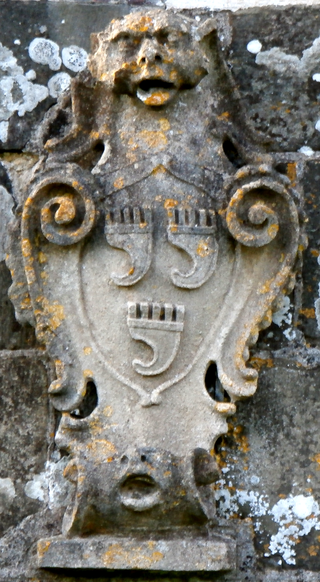
Sir Richard Grenville was a professional soldier from Cornwall, who served in the Thirty Years War, and 1638 to 1651 Wars of the Three Kingdoms. He was the younger brother of Sir Bevil Grenville, who died at Lansdowne in 1643, and grandson of Admiral Sir Richard, killed at Flores in 1591.

The Prayer Book Rebellion or Western Rising was a popular revolt in Cornwall and Devon in 1549. In that year, the first Book of Common Prayer, presenting the theology of the English Reformation, was introduced. The change was widely unpopular, particularly in areas where firm Catholic religious loyalty still existed, such as Lancashire. Along with poor economic conditions, the enforcement of English language church services only in Cornish-speaking areas led to an explosion of anger in Cornwall and Devon, initiating an uprising. At the gates of Exeter, the rising leaders announced, "and so we Cornishmen, whereof certain of us understand no English, utterly refuse this new English". In response, Edward Seymour, 1st Duke of Somerset sent John Russell to suppress the revolt, with the rebels being defeated and its leaders executed two months after the beginning of hostilities.
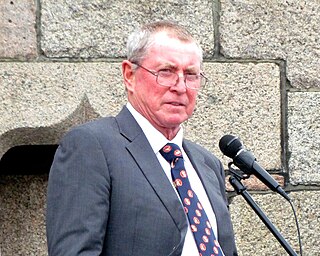
John Vivian Drummond Nettles, is an English actor and author. He is best known for his starring roles as detectives in the crime drama television series Bergerac (1981–1991) in the title role, and Midsomer Murders (1997–2011) as Detective Chief Inspector Tom Barnaby. He has also narrated several television series.

William George Hoskins was an English local historian who founded the first university department of English Local History. His great contribution to the study of history was in the field of landscape history.

The Northcott Theatre is a theatre situated on the Streatham Campus of the University of Exeter, Exeter, Devon, England. It opened in 1967 and was run until 2010 by the Northcott Theatre Foundation, when the company ceased operating after a period in administration. The theatre is now known as Exeter Northcott Theatre and became a registered charity in June 2013.
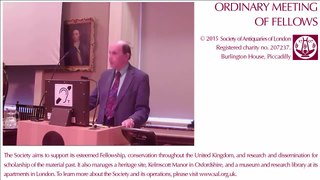
Nicholas Orme FSA FRHistS is a British historian specialising in the Middle Ages and Tudor period, focusing on the history of children, and ecclesiastical history, with a particular interest in South West England.
Events from the year 1682 in England.
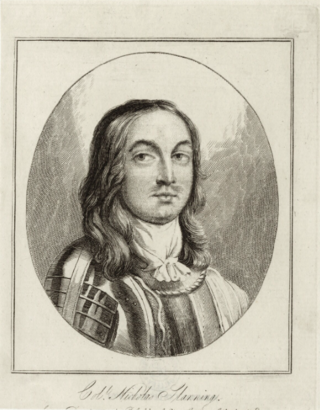
Sir Nicholas Slanning was a soldier and landowner from Devon who sat in the House of Commons from 1640 to 1642. He served in the Royalist army during the First English Civil War and was mortally wounded at Bristol on 26 July 1643.

Cornwall played a significant role in the English Civil War, being a Royalist enclave in the generally Parliamentarian south-west.

The New Cornish Tertia were four Royalist regiments of infantry raised in Cornwall and Devon by Sir Richard Grenville, 1st Baronet in 1644, during the English Civil War. As the maps aside show, Cornwall and Wales were staunch Royalist strongholds whilst South East England was held by Parliament, and the remainder of England was in dispute.
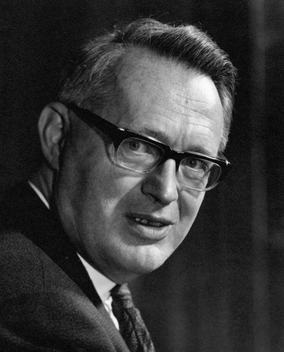
David Rees FRS was a British professor of pure mathematics at the University of Exeter, having been head of the Mathematics / Mathematical Sciences Department at Exeter from 1958 to 1983. During the Second World War, Rees was active on Enigma research in Hut 6 at Bletchley Park.

Hele's School was a boys' grammar school, and latterly a comprehensive school, in the city of Exeter, Devon, England.

Boy was a white hunting poodle belonging to Prince Rupert of the Rhine in the 17th century. Parliamentarian propaganda alleged that the dog was "endowed" with magical powers.

The University of Exeter is a research university in the West Country of England, with its main campus in Exeter, Devon. Its predecessor institutions, St Luke's College, Exeter School of Science, Exeter School of Art, and the Camborne School of Mines were established in 1838, 1855, 1863, and 1888 respectively. These institutions later formed the University of Exeter after receiving its royal charter in 1955. In post-nominals, the University of Exeter is abbreviated as Exon., and is the suffix given to honorary and academic degrees from the university.

Exeter is a cathedral city and the county town of Devon, South West England. It is situated on the River Exe, approximately 36 mi (58 km) northeast of Plymouth and 65 mi (105 km) southwest of Bristol.
George W. Bernard is a British historian who specializes in the reign of King Henry VIII of England, specifically the English Reformation of the 1530s – both in England and globally – and the "reign" of Anne Boleyn. He is most famous for his arguments for the strength of Henry VIII as a ruler not controlled by faction, and for his theory that Anne Boleyn was guilty of adultery in 1536, based on a poem by Lancelot de Carles. He is commonly juxtaposed with David Starkey and Eric Ives, who have forcefully presented opposing arguments. Bernard's willingness to defend unpopular positions has been noted both by his admirers and his critics.
Walter Edward Minchinton, FRHistS was a British historian and academic. He was Professor of Economic History at the University of Exeter from 1964 to 1986.

Alice Molland, believed to have died in 1685, was an English woman executed in Exeter for witchcraft. Though details of her trial remain scarce and poorly documented, she is often cited as the last person confirmed to have been hanged for witchcraft in England.














